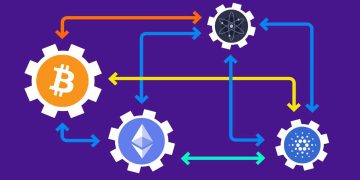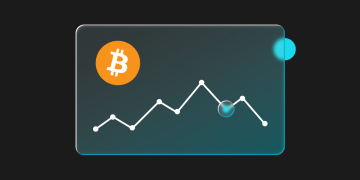Introduction
The financial technology (FinTech) industry has experienced an unprecedented growth trajectory over the past decade. What began as a niche sector is now transforming the financial services landscape, reshaping everything from traditional banking to investment management. FinTech innovations, such as mobile payments, peer-to-peer lending, blockchain technology, and robo-advisory services, are democratizing access to financial services and offering enhanced user experiences.
However, with this rapid growth comes a host of regulatory challenges. The lack of standardization, rapid technological advancements, and the global nature of many FinTech solutions create significant complexities for regulators worldwide. Financial authorities must navigate between fostering innovation and ensuring consumer protection, market stability, and systemic risk prevention.
This article explores the primary regulatory challenges faced by the FinTech industry, the role of regulators in managing these challenges, and the way forward to balance innovation with regulation in an ever-evolving sector.
1. The Rise of FinTech and Its Global Impact
Before diving into regulatory concerns, it’s important to understand how the FinTech industry has evolved and why its growth is so impactful.
The FinTech Revolution:
FinTech refers to any technological innovation aimed at improving or automating financial services. From peer-to-peer (P2P) lending platforms like LendingClub to blockchain-based cryptocurrencies such as Bitcoin, FinTech innovations have disrupted every corner of the financial services industry.
- Digital Payments: Companies like PayPal, Square, and Alipay have revolutionized digital payment systems, making financial transactions faster, more convenient, and global in reach.
- Blockchain & Cryptocurrencies: Decentralized technologies such as blockchain and Bitcoin have introduced a new form of financial transaction that operates outside of traditional banking institutions. These innovations have laid the groundwork for a new wave of decentralized finance (DeFi) platforms.
- Robo-Advisors: FinTech companies like Betterment and Wealthfront are transforming wealth management by offering automated investment advice, which reduces costs and makes financial planning accessible to the masses.
- Crowdfunding & Peer-to-Peer Lending: Platforms like Kickstarter, GoFundMe, and Prosper have empowered individuals and startups to raise capital directly from the public, bypassing traditional financial institutions.
Global Impact of FinTech:
The global reach of FinTech cannot be overstated. In developed markets, FinTech has driven financial inclusion by providing access to banking services for the unbanked. In emerging markets, FinTech solutions are addressing critical gaps in access to credit, savings, and investment opportunities, fueling economic growth and financial empowerment.
However, the rapid expansion of the FinTech sector presents an evolving set of challenges for regulators who must balance innovation with consumer protection, financial stability, and compliance with existing financial laws.
2. Regulatory Challenges Posed by the FinTech Industry
As the FinTech industry evolves, so too must the regulatory framework that governs it. The pace of innovation in this space often outstrips the ability of regulators to keep up, creating several significant challenges.
a. Lack of Regulatory Standardization
One of the most significant challenges FinTech companies face is the lack of standardized regulations across jurisdictions. Financial services are inherently global, with users, investors, and companies spanning borders. However, regulatory frameworks differ significantly from country to country.
- Example: In the United States, financial institutions must comply with a patchwork of state and federal regulations, such as the Dodd-Frank Act, the Bank Secrecy Act, and the Securities Exchange Act. Meanwhile, in the European Union, the Payment Services Directive (PSD2) and the General Data Protection Regulation (GDPR) provide a unified framework for digital payments and data protection. The lack of harmonization in global regulations complicates the ability of FinTech companies to scale internationally.
- Impact on Companies: FinTech companies that wish to expand into new markets must navigate diverse regulatory requirements, which can be costly and time-consuming. Regulatory compliance can become a major barrier to entry for smaller firms without the resources to manage complex, multi-jurisdictional compliance.
b. Consumer Protection
As FinTech products often deal with sensitive financial data and user funds, regulators must ensure that consumers are adequately protected from fraud, cyber-attacks, and financial mismanagement.
- Data Privacy and Security: With the rise of digital payments and mobile wallets, ensuring that consumer data is protected from cyber threats has become paramount. In many countries, including the European Union (EU) and the United States, regulatory bodies have introduced stringent data protection laws such as the General Data Protection Regulation (GDPR) and the California Consumer Privacy Act (CCPA).
- Financial Risk and Fraud Prevention: Many FinTech platforms involve user-to-user transactions, which can increase the risk of fraud and money laundering. Regulators have implemented Anti-Money Laundering (AML) and Know Your Customer (KYC) guidelines to mitigate these risks. However, FinTech companies operating in decentralized systems, such as cryptocurrency exchanges, present unique challenges that existing AML/KYC frameworks are ill-equipped to handle.
- Protecting Vulnerable Consumers: Financial products offered by FinTech platforms are often more complex than traditional banking services. This complexity can lead to confusion, which may harm vulnerable consumers. The regulatory challenge lies in ensuring that consumers understand the risks associated with these products.
c. Risk to Financial Stability
FinTech’s rapid growth has introduced systemic risks to the financial system. The widespread adoption of new financial technologies could potentially destabilize markets and threaten financial institutions.
- The Role of Stablecoins and Cryptocurrencies: Cryptocurrencies, such as Bitcoin and Ethereum, pose unique challenges to regulators, especially considering their potential to act as “unregulated money.” Stablecoins, which are pegged to traditional assets like the US dollar, add another layer of complexity, as they could potentially serve as an alternative to national currencies, impacting monetary policy and financial stability.
- Systemic Risk in DeFi: The rise of decentralized finance (DeFi) protocols, which operate without central authorities, poses a significant risk. While they promote decentralization and financial inclusion, they also lack traditional safeguards, such as central banks or regulatory bodies, to manage systemic risk. DeFi platforms are subject to fewer oversight mechanisms, making them susceptible to security breaches, volatility, and regulatory arbitrage.
d. Regulatory Arbitrage
Regulatory arbitrage occurs when FinTech companies exploit differences between jurisdictions to avoid stringent regulations. For example, many cryptocurrency exchanges and DeFi platforms have chosen to operate in countries with more lenient regulatory environments, such as Switzerland or the Cayman Islands.
- Cross-Border Transactions: Many FinTech platforms enable cross-border transactions that make it difficult for any single nation’s regulatory framework to govern them. This creates challenges for national regulators to enforce compliance across borders.
- Impact on National Economies: Regulatory arbitrage weakens the effectiveness of national regulations and can undermine the financial stability of entire countries if large FinTech firms choose to operate in jurisdictions with less regulatory oversight.

3. The Role of Regulatory Bodies in Managing FinTech Challenges
Given the rapid growth of FinTech and the accompanying regulatory challenges, regulators are increasingly stepping up their efforts to establish frameworks for the industry. However, the goal of these regulators is not to stifle innovation but to ensure that FinTech companies comply with established rules to protect consumers and ensure market stability.
a. Developing a Holistic Regulatory Approach
Regulators must recognize that FinTech’s innovative nature requires a new approach. Rather than regulating specific technologies, regulators are beginning to adopt a “technology-neutral” approach that focuses on the outcomes rather than the means by which they are achieved.
- Example: In 2021, the European Union launched its Digital Finance Package, which outlines a regulatory framework aimed at ensuring that the digital financial ecosystem remains secure, transparent, and resilient. The package includes a proposal for a new Digital Operational Resilience Act (DORA), which will help FinTech companies and other financial entities strengthen their cybersecurity practices.
b. International Cooperation
To address the challenges posed by global financial technology, international cooperation is essential. Organizations such as the Financial Stability Board (FSB) and the International Organization of Securities Commissions (IOSCO) are working together to develop global guidelines for regulating FinTech and related sectors.
- Example: The G20 and the OECD have been actively discussing the regulation of cryptocurrencies and blockchain technology. Their collaborative efforts aim to establish a framework for digital asset regulation and ensure consistent global standards for FinTech operations.
c. Sandbox Regulation
To encourage innovation while managing risks, many regulators have introduced regulatory sandboxes. These allow FinTech startups to test their products and services in a controlled environment before going to market.
- Example: The UK’s Financial Conduct Authority (FCA) has successfully implemented a regulatory sandbox where FinTech firms can experiment with new financial products under the supervision of regulators. Other countries, including Singapore, Australia, and Canada, have adopted similar models.
4. The Way Forward for FinTech Regulation
The regulatory landscape for FinTech is in a state of constant evolution. As new technologies continue to emerge, regulators must remain agile and proactive. While there is no one-size-fits-all approach, several key trends are likely to shape the future of FinTech regulation:
- Adapting to New Technologies: Regulators will need to stay ahead of technological innovations and ensure that they are effectively incorporated into the regulatory framework without stifling innovation.
- Consumer-Centric Regulation: Future regulatory efforts will likely focus more on ensuring that consumers have adequate protections, especially when dealing with high-risk financial products.
- Global Collaboration: As the FinTech sector is inherently global, regulators will need to continue collaborating across borders to develop standardized frameworks that are both robust and flexible.
Conclusion
The rapid development of the FinTech industry presents numerous regulatory challenges, but also immense opportunities. By fostering collaboration between regulators, FinTech companies, and other stakeholders, the industry can evolve in a manner that balances innovation, financial stability, and consumer protection. While the challenges are substantial, the potential for positive transformation is equally vast. As we move forward, thoughtful, flexible, and forward-looking regulation will be the key to unlocking the full potential of the FinTech revolution.

















































